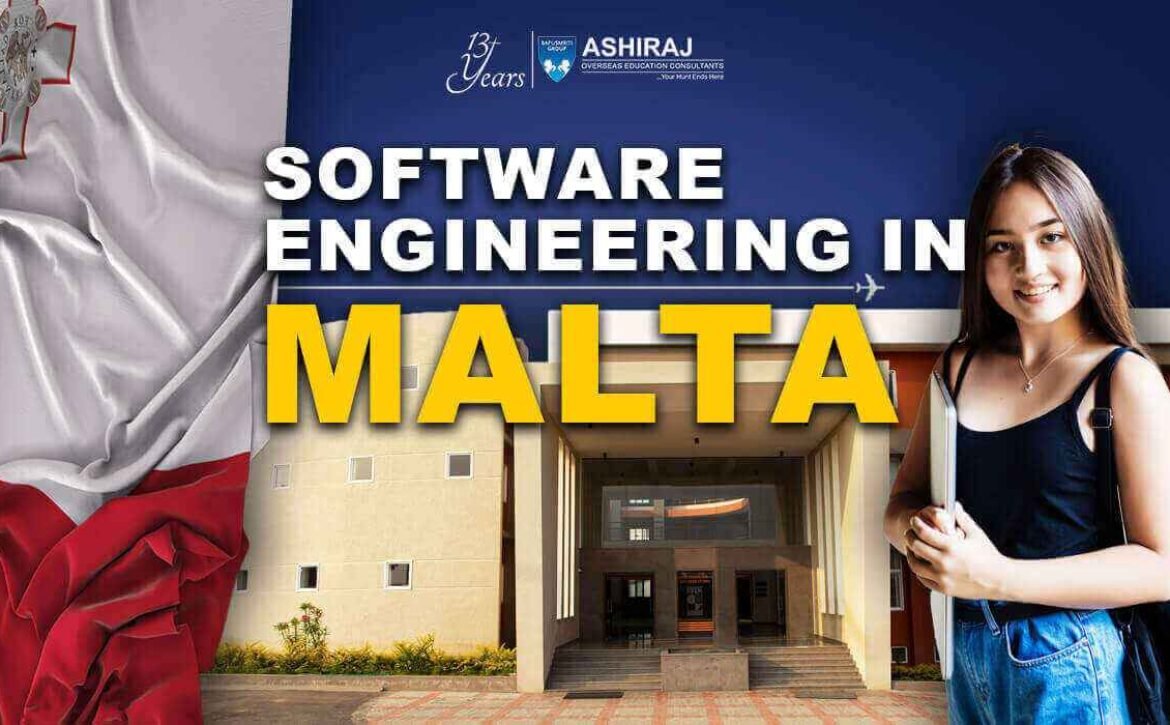
Software Engineering in Malta
Software Engineering in Malta has emerged as a dynamic and thriving sector within the country’s technology landscape. Malta, nestled in the heart of the Mediterranean, has been increasingly recognized for its burgeoning software engineering industry. With a strategic location, favorable business environment, and a skilled workforce, Malta has attracted numerous software engineering firms and startups.
The software engineering scene in Malta encompasses a diverse range of specialties, including web development, mobile applications, cybersecurity, and more. Companies in Malta leverage the country’s supportive infrastructure and access to the European market, fostering innovation and growth within the sector.
Malta’s commitment to technology and innovation, coupled with its strategic initiatives in education and research, has paved the way for the continuous advancement of software engineering practices. As the demand for digital solutions escalates globally, Software Engineering in Malta remains a pivotal contributor to the country’s economy and technological advancement.
Why Study Software Engineering Courses in Malta?
- Emerging Technological Hub: Malta has emerged as a promising technological hub, offering a conducive environment for studying software engineering. The country’s growing IT industry presents ample opportunities for hands-on learning and practical experience.
- Strategic Location: Situated at the crossroads of Europe, Africa, and the Middle East, Malta provides access to a diverse market and networking opportunities within the European Union, making it an ideal location to study software engineering.
- Quality Education: Renowned educational institutions in Malta offer high-quality software engineering courses taught by experienced faculty members. The curriculum often aligns with industry standards, providing students with relevant skills and knowledge.
- Thriving Industry Connections: Students studying software engineering in Malta benefit from strong industry connections. Many educational programs facilitate internships, collaborations, and networking events with local tech companies, fostering valuable professional relationships.
- Multicultural Experience: Malta’s multicultural environment offers students a rich cultural experience, exposing them to diverse perspectives and enhancing their global outlook, an asset in the interconnected world of software engineering.
- Career Opportunities: The demand for skilled software engineers in Malta is on the rise. Studying here can lead to rewarding career prospects, with opportunities in various sectors, including finance, gaming, cybersecurity, and more.
Studying Software Engineering in Malta offers a unique blend of academic excellence, industry relevance, and diverse cultural experiences, making it an attractive choice for aspiring engineers seeking a promising career path in the field.
Course Curriculum of Software Engineering in Malta
- Foundational Studies: Software Engineering courses in Malta typically begin with foundational subjects covering programming languages, algorithms, and data structures. These lay the groundwork for understanding the core principles of software development.
- Specialized Modules: The curriculum delves into specialized modules such as software design, development methodologies, and system architecture. These modules emphasize practical application and often incorporate real-world case studies.
- Emerging Technologies: Students explore emerging technologies like artificial intelligence, machine learning, and cybersecurity. These components equip students with up-to-date knowledge essential in today’s rapidly evolving tech landscape.
- Practical Projects: Hands-on projects and internships are integral parts of the curriculum. Students engage in practical assignments, collaborating on software development projects that simulate real industry scenarios.
- Industry Integration: Many courses in Malta integrate industry collaborations, allowing students exposure to industry practices, guest lectures by professionals, and networking opportunities.
- Capstone Projects: Culminating the program, students often undertake capstone projects, applying acquired knowledge to solve complex problems or develop innovative software solutions.
The Software Engineering curriculum in Malta balances theoretical knowledge with practical application, preparing graduates with the skill set necessary to thrive in the dynamic field of software development.
List of Top Universities in Malta For Software Engineering
University | QS World University Ranking 2023 | Type of University | Average Annual Fees | Programs Offered |
University of Malta | 701-750 | Public | €1,000 – €2,500 | BSc in Software Development and AI |
Malta College of Arts, Science, and Technology (MCAST) | Not Ranked | Public | €800 – €1,500 | Diploma in Software Development |
Global College Malta | Not Ranked | Private | €3,000 – €6,000 | BSc (Hons) in Software Engineering |
European Institute of Education | Not Ranked | Private | €2,000 – €4,000 | MSc in Software Engineering |
Saint Martin’s Institute of Higher Education | Not Ranked | Private | €3,000 – €5,000 | BSc (Hons) in Computer Science with Software Engineering specialization |
The top universities in Malta for Software Engineering offer diverse programs catering to different educational needs and budgets. The University of Malta, a renowned public institution, provides a BSc in Software Development and AI at an affordable cost. MCAST offers a Diploma in Software Development at a lower fee, suitable for those seeking specialized training.
For students preferring private institutions, Global College Malta offers a comprehensive BSc (Hons) in Software Engineering, while the European Institute of Education provides an MSc program focusing on advanced software engineering concepts. Saint Martin’s Institute of Higher Education offers a specialized BSc (Hons) in Computer Science with a focus on Software Engineering, blending computer science fundamentals with practical software engineering skills. These universities contribute significantly to the vibrant landscape of Software Engineering in Malta.
Eligibility Criteria for Software Engineering in Malta
IELTS and TOEFL Scores:
Test | Minimum Score Required |
IELTS | 6.0 |
TOEFL | 80 |
Passport & Student Visa:
A valid passport is essential for international students applying for Software Engineering programs in Malta. Additionally, acquiring a student visa is mandatory for non-EU/EEA students. The visa process involves submitting necessary documentation to the Maltese embassy or consulate in their home country.
Academic Certificates:
Applicants are required to provide academic certificates demonstrating completion of secondary education or equivalent qualifications. These may include high school transcripts, diplomas, or certificates.
Work Experience:
While not always mandatory, some universities or programs may consider prior work experience in the field of software engineering as an added advantage during the admission process.
Meeting the eligibility criteria is crucial for prospective students aiming to pursue Software Engineering in Malta. Fulfilling language proficiency requirements through IELTS or TOEFL, obtaining necessary travel documents like a passport and student visa, providing academic certificates, and demonstrating relevant work experience, where applicable, are pivotal steps in the application process. These criteria ensure that students possess the necessary skills and qualifications to excel in their chosen program of study in Malta.
Documents Required for Software Engineering in Malta
Essential Documentation:
- Passport: A valid passport is necessary for identification and visa purposes.
- Student Visa: Non-EU/EEA students must obtain a student visa from the Maltese embassy or consulate.
- Academic Records: High school transcripts, diplomas, or certificates demonstrating completion of secondary education.
- Language Proficiency: Proof of meeting language requirements through IELTS or TOEFL scores (IELTS: 6.0, TOEFL: 80).
Additional Documentation:
- Letters of Recommendation (LOR): Typically two LORs from academic or professional referees highlighting the applicant’s skills and abilities.
- Statement of Purpose (SOP): A personalized essay detailing the applicant’s motivations, career goals, and reasons for choosing Software Engineering in Malta.
- Curriculum Vitae (CV): A comprehensive resume outlining academic achievements, work experience, projects, and skills relevant to software engineering.
- Work Experience Certificate: If applicable, a document verifying previous work experience in the field.
- Proof of Financial Resources: Evidence of financial stability to cover tuition fees and living expenses during the study period.
Ensuring the submission of these documents is crucial for a comprehensive application to Software Engineering programs in Malta. These documents provide a holistic overview of the applicant’s qualifications, intentions, and readiness to pursue education in this field in Malta.
Admission Process for Software Engineering in Malta
- Research and Select Universities: Explore accredited universities offering Software Engineering programs in Malta. Consider rankings, program specifics, and faculty expertise.
- Check Eligibility Criteria: Review admission requirements, including academic qualifications, language proficiency (IELTS: 6.0, TOEFL: 80), and other prerequisites.
- Prepare Required Documents: Gather essential documentation—academic transcripts, passport, language test scores, SOP, LORs, CV, and proof of financial resources.
- Submit Application: Complete the university’s online application form, attaching the necessary documents as per the specified guidelines.
- Application Review: The university assesses applications based on academic records, language proficiency, recommendation letters, and the applicant’s statement of purpose.
- Interview (if required): Some programs may require an interview to further evaluate the candidate’s suitability for the program.
- Receive Admission Decision: Successful candidates receive an admission offer from the university. This may include details regarding fees, enrollment, and visa procedures.
- Obtain Student Visa: Non-EU/EEA students secure a student visa from the Maltese embassy or consulate upon receiving the admission letter.
- Enrollment and Commencement: Once all formalities are completed, enrolled students begin their Software Engineering studies in Malta.
Following these steps ensures a smooth and organized process for aspiring students aiming to pursue Software Engineering in Malta, facilitating a successful transition into their academic journey.
“Education is the most powerful weapon which you can use to change the world.”
Nelson Mandela
Cost of Studying Software Engineering in Malta
- Tuition Fees: The average annual tuition fees for Software Engineering programs in Malta vary based on the institution and degree level. For instance, public universities like the University of Malta might charge between €1,000 – €2,500, while private institutions could range from €2,000 – €6,000 per year.
- Accommodation: Accommodation costs in Malta differ depending on the location and type of housing chosen. On average, renting a shared apartment might cost around €300 – €600 per month.
- Living Expenses: Students should budget for additional living expenses, including food, transportation, books, and other personal costs, which might amount to approximately €300 – €500 per month.
- Health Insurance: Non-EU/EEA students may need health insurance, which can range from €150 – €300 per year, depending on the coverage.
- Other Expenses: Miscellaneous expenses such as residence permit fees, utility bills, and leisure activities should also be factored in, amounting to an estimated €100 – €200 per month.
Understanding the cost of studying Software Engineering in Malta is crucial for prospective students planning their budget. Considering tuition fees, accommodation, living expenses, and additional costs will help in financial planning for a smooth and affordable educational experience in Malta.
Scholarships For Software Engineering in Malta
Scholarship Name | Amount | Application Deadline | Eligibility Criteria |
Malta Government Scholarships | Varies | March 31 | Open to international students pursuing Software Engineering in Malta, based on academic merit and need. |
University-specific Scholarships | Varies | Varies | Offered by individual universities in Malta, available to students based on academic excellence, financial need, or specific criteria set by the institution. |
Erasmus+ Scholarships | Varies | Varies | Available for EU/EEA students undertaking Software Engineering programs in Malta, offering financial support for studies, internships, or research in EU countries. |
Endeavour Scholarship Programme | Varies | Varies | Provides financial support to high-achieving students from selected countries pursuing Software Engineering studies in Malta, covering tuition fees and living expenses. |
Chevening Scholarships | Full funding | November 1 | Open to students from eligible countries worldwide, covering full tuition fees, living expenses, and other allowances for Software Engineering programs in Malta. |
Scholarships play a pivotal role in supporting students pursuing Software Engineering in Malta. Various opportunities, such as government-funded scholarships, university-specific grants, and international programs like Erasmus+ or Endeavour, offer financial assistance based on merit, need, or specific criteria. Application deadlines for these scholarships vary, with some requiring submission by March 31, while others follow university-specific or annual deadlines. These scholarships aim to alleviate the financial burden, enabling deserving students to access quality education and pursue their academic aspirations in Software Engineering in Malta.
Career Opportunities After Software Engineering in Malta
Job Profile | Average Salary (per year)* |
Software Developer | €25,000 – €40,000 |
Systems Analyst | €30,000 – €45,000 |
IT Project Manager | €40,000 – €55,000 |
Database Administrator | €35,000 – €50,000 |
Cybersecurity Analyst | €35,000 – €55,000 |
Salaries may vary based on experience, expertise, and the employing organization.
Software Engineering in Malta opens up diverse and lucrative career opportunities for graduates. As a Software Developer, individuals can expect an average salary ranging between €25,000 – €40,000 per year. Those inclined towards Systems Analysis may earn around €30,000 – €45,000 annually, while IT Project Managers command salaries averaging between €40,000 – €55,000 per year. Database Administrators can anticipate earning within the range of €35,000 – €50,000 yearly. Moreover, the demand for Cybersecurity Analysts presents an earning potential of €35,000 – €55,000 per annum.
These figures showcase the rewarding career prospects available for Software Engineering graduates in Malta. The field offers competitive salaries across various job roles, reflecting the country’s growing tech industry and the need for skilled professionals. Pursuing a career in Software Engineering in Malta not only ensures financial stability but also provides opportunities for continuous growth and advancement in the field.
Frequently Asked Questions About Software Engineering in Malta
Yes, Malta has a growing tech industry with ample job opportunities for Software Engineers across various sectors like finance, gaming, cybersecurity, and more.
Some renowned universities in Malta providing Software Engineering programs include the University of Malta, MCAST, Global College Malta, and others.
Tuition fees vary but typically range from €1,000 to €6,000 per year, depending on the university and program level (public or private institutions).
No, most programs are conducted in English, and proficiency in English (demonstrated through IELTS or TOEFL) is usually sufficient.
Yes, there are various scholarships offered by the government, universities, and international programs like Erasmus+ for eligible students.
Bachelor’s programs typically last for 3-4 years, while Master’s programs may range from 1-2 years, depending on the degree level.
If you fulfill the necessary requirements and have an acceptance letter from a recognized institution, obtaining a student visa is generally straightforward.
Graduates can pursue careers as Software Developers, Systems Analysts, IT Project Managers, Database Administrators, or Cybersecurity Analysts with competitive salaries.
Malta boasts a well-developed tech infrastructure, fostering an environment conducive to technological innovation and development.
Universities often facilitate internships, industry collaborations, workshops, and networking events to provide students with practical experience and connections within the tech industry.




